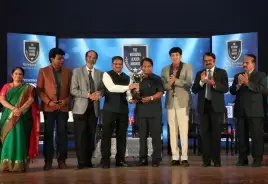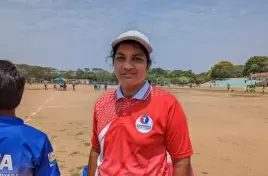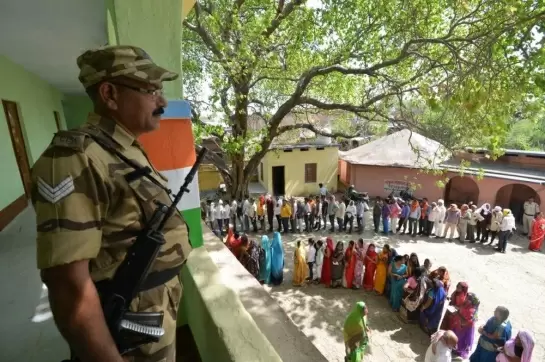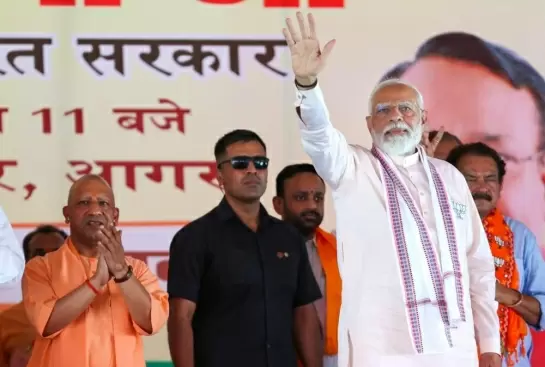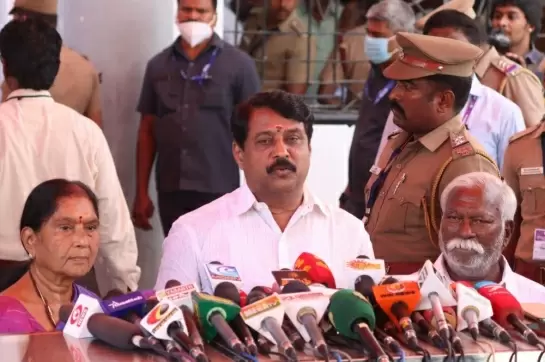‘Separate, free, clean, safe public urinals for women every two km’
04-October-2013
Vol 4 | Issue 40
Mumbai has the largest number of working women in the country and they play a critical role in city’s growth story. Even the census and National Sample Survey Organisation (NSSO) rounds confirm their increased participation in all sectors of the economy.
The number of girls and women staying out of home for extended hours and regularly travelling long distances, whether for work or education, has increased exponentially - informal sector women workers, in fact, are out for an average of 16 hours in a day.
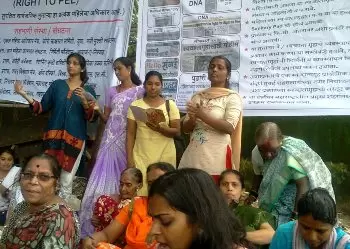 |
|
About forty community-based organizations have joined hands to demand proper toilet facilities for women in public places (Photos: Alka Apte)
|
Among the numerous difficulties women encounter as they go about their already tough work life is that of access to a toilet. In Mumbai, toilets for women, particularly in public spaces has been a perennial problem – whether at railway or bus stations, highways, industrial estates, educational institutions, public parks, tourist spots, public hospitals or markets.
Added to this apathy is the ramshackle state of the existing public conveniences – they are dirty, stinking and without running water. Poor infrastructure combined with an insufficient deployment of cleaning staff, create a nightmarish experience for those who are forced to visit such a facility. In a city of more than 18 million, while there are 2,849 free public urinals for men there are none for women!
To address this critical issue, 40 community-based organisations in Mumbai joined hands to mount the Right to Pee campaign that has been putting pressure on the Brihanmumbai Municipal Corporation (BMC) to provide more women's toilets and refurbish the ones that are rundown in the 27 wards of the city.
According to Supriya Sonar of the Committee of Resource Organisations (CORO), the organisation that initiated the movement 18 months ago, “It all started when, as part of CORO’s grassroots leadership advocacy fellowship programme, which is run across Maharashtra with the support of 106 organisations, we decided to look at public advocacy.
“Instead providing training around different issues there was a consensus on taking on one burning public issue in every region. In Mumbai, it has been public urinals for women. Today, the Right to Pee is everyone’s campaign – from women fruit vendors to doctors and educationists, to town planners and gender experts.”
Why is the demand for public toilet facilities for women an absolute need of the hour? For starters, there are serious health issues involved. Besides relieving themselves and attending to small children, women need to use toilet facilities for changing sanitary napkins during menstruation.
Lack of access to a restroom, therefore, puts them at risk of developing bladder infections, reproductive tract infections and cystitis. Moreover, going out in the open or using toilets with male attendants increases their vulnerability to violence.
Of course, what hits working class women the hardest is the fee charged. Sunita (name changed), a fruit vendor at the Bandra station, speaks for many city women when she says, “I barely earn Rs 70-80 per day. Yet, when I need to relieve myself I have no option but to go to a public toilet where I end up paying Rs 10 per day as I take my three kids along too. How can I afford it?”
Adds Sonar, “This is absolutely unfair. The few toilet blocks that are there are charging a fee even though there is a BMC circular directing that toilet facilities should be free for women and men. There are boards outside that state the same and yet a fee, which is arbitrary, is charged. Some take Re 1, others Rs 2 depending on the area.”
Based on these observations, the Right to Pee campaign partners came up with a concrete plan of action. An RTI petition to get the definite number of public urinals for women and men in the city was filed, followed by a survey of 129 toilet blocks done between February and May 2011.
Simultaneously, activists and local volunteers, including women like Sunita, conducted an extensive signature campaign at 16 railway stations. On June 5, 2011, a final report was submitted to the BMC along with 50,000 signatures supporting the demands of the campaign.
Sonar elaborates, “We have stated that separate, free, clean, safe public urinals for women be constructed at a distance of every two kilometers, particularly keeping the needs of disabled women in mind. Information boards should be placed at the entrance clearly indicating that the facility is free.
“We also want the management of urinals and toilet blocks be handed over to organisations working on women’s issues with financial assistance from the BMC. We understand that this cannot happen all at once, so one demand is that such separate urinals for women be started on an experimental basis and then be included in city planning of Mumbai.”
Over the last two years, a lot of advocacy has been done - from street plays to encourage greater public participation to rallies to catch the attention of the administration. Gynaecologists have been roped in to explain the health hazards; independent planning experts have shared their insights on suitable locations to construct toilets. Understanding the budgetary allocations has been a major part of the exercise.
All this has resulted in two significant developments. Firstly, the issue has been acknowledged in the Maharashtra Policy for Women 2013, which states that a public toilet block for women should be constructed every 20 kilometres.
Secondly, there is finally a financial allocation by Municipal Corporation of Greater Mumbai, also known as BMC, in the form of a document entitled ‘Gender Budget for Sanitation 2013-14’, which in its preface, promises to construct toilets for women in crowded places. In the current year, there is a budgetary allocation of Rs 75 lakh to build 25 toilets, which, unfortunately, is grossly inadequate though work on these too has not begun.
The Right to Pee campaign is getting ready to file a Public Interest Litigation (PIL) in the Bombay High Court. Reveals Sonar, “Not only is there a lack of political will but the municipality and town planning authorities are not gender sensitive in their approach. Their attitude is that at least we have made a provision. But what about implementation? The PIL is being filed on the grounds that the lack of toilets violates women’s the right to live with dignity, right to health and human rights.”
Sheetal (name changed), a newspaper vendor, who has been associated with the campaign, hopes that things will get better soon, “I start from home at 5 am and from that time until noon every day I am on my feet. I have to give money to use a public toilet, a cost I cannot afford. The government has to realise that we need this free facility.”
If Mumbai, a city where women make crucial contribution to the local economy, claims to be gender-friendly, it needs to respect women’s Right to Pee. - Women's Feature Service


